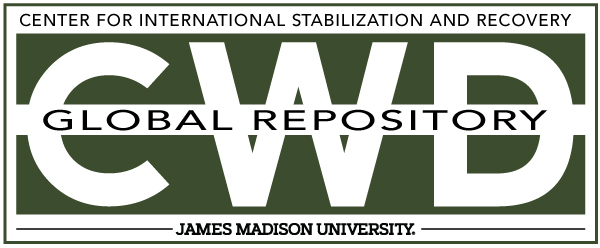Document Type
Other
Creative Commons License

This work is licensed under a Creative Commons Attribution-Noncommercial-No Derivative Works 4.0 License.
Publication Date
3-30-2021
Keywords
Advocacy and International Law, ERW Clearance, Gender, Afghanistan, GICHD, UNMAS, DRC-DDG, DMAC, Female, Deminer
Abstract
For the first time in the thirty years of mine action in Afghanistan, as part of an initiative of the United Nations Mine Action Service (UNMAS), in June 2018 a mixed-gender demining team was deployed by the Danish Demining Group (DRC-DDG) to clear landmines in Bamyan Province, in the central highlands of the country. A minefield was successfully cleared in six months. Following the success of the first project, in 2019 the same demining team was deployed once again to Bamyan to clear other hazards, including the last known minefield in the province. Bamyan has since been declared the first province in the country free of legacy minefields.
This Perception Study assesses if and to what extent the recruitment of women in demining work has contributed to a change in gender norms in the province. The study is a joint initiative between the United Nations Mine Action Service, the Danish Demining Group, the Directorate of Mine Action Coordination (DMAC), and the Geneva International Centre for Humanitarian Demining (GICHD).
The study adopted quantitative primary data collection methods, consisting of a baseline (May 2019) and an end-line survey (October 2019). Male and female deminers, as well as the latter’s family and community members, were surveyed on their views and attitudes in relation to the socioeconomic empowerment of women. The study covered an average of 92 respondents, with 101 individuals interviewed in the baseline survey, and 83 in the end-line data collection. Except for a few absentees in the end-line survey, the same groups were interviewed in both rounds of data collection to ensure an objective and reliable comparison of findings.
The findings of the study are largely positive and provide initial evidence that recruiting female deminers supports gender equality by promoting positive attitudes towards women’s socioeconomic empowerment, even in more conservative societies. The study highlights how the recruitment of female deminers not only contributes to their own financial independence, but also promotes their agency as proactive family and community members. Notably, by the end of the data collection many female deminers reported being more confident and outspoken. Family and community members of both genders also expressed more respect for women’s opinions, appreciation for their work, and recognition of their capabilities.
Among the most relevant findings are the following:
The percentage of male respondents who agreed or strongly agreed that women can do the same jobs as men increased from 72% at the start of the project to 100% by the end of it;
● 100% of male and female family members strongly agreed by the end of the project that they would encourage a female relative to work as a deminer, compared to 20% and 89% respectively in the baseline;
● The percentage of men who by the end of the data collection did not believe that the job of a deminer is not appropriate for a woman increased from 59% to 82%;
● Both female and male deminers became much more confident by the end of the project that women have the necessary strength to work as deminers (from 50% to 100% and from 46% to 75% for women and men respectively);
● Female deminers were more likely than their male colleagues to believe that demining is too dangerous for a woman by the end of the project;
At the end of the project female deminers believed to be taken seriously in the same way by male and female community members (86% in both cases, compared to 50% and 90% respectively in the baseline);
● 100% of female deminers agreed by the end of the project that they were able to influence decision-making in their community, compared with 60% in the baseline;
● Female and male deminers were almost as likely to identify with the statement ‘I participate actively in community discussions and decisions’, both at the beginning (90% for women, 92% for men) and at the end of the project (86% for women, 83% for men).
● 100% of male heads of household (HOHs) of families including female deminers believed both at the start and at the end of the project that women should be able to influence decision-making in the community.
Whilst these findings should not be deemed representative of the whole country due to the limited size and geographical scope of the study, these results are encouraging as they depict how perceptions on women’s role in society can begin to change in a period of time as short as that of this project. The findings may be used as evidence to support similar projects on women’s empowerment and gender equality in other parts of the country, and inspire more work on mine action’s contribution to the transformative change of gender norms in Afghanistan at the individual, family, and community level.
Included in
Defense and Security Studies Commons, Peace and Conflict Studies Commons, Public Policy Commons, Social Policy Commons



